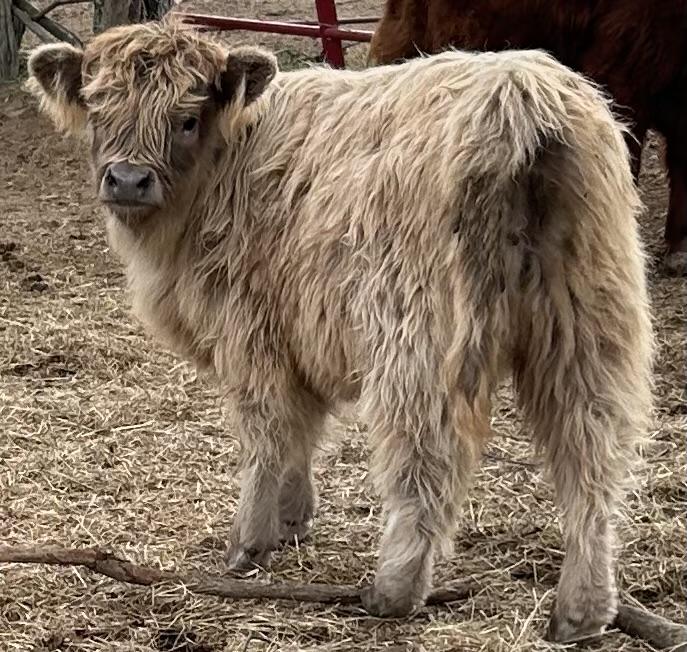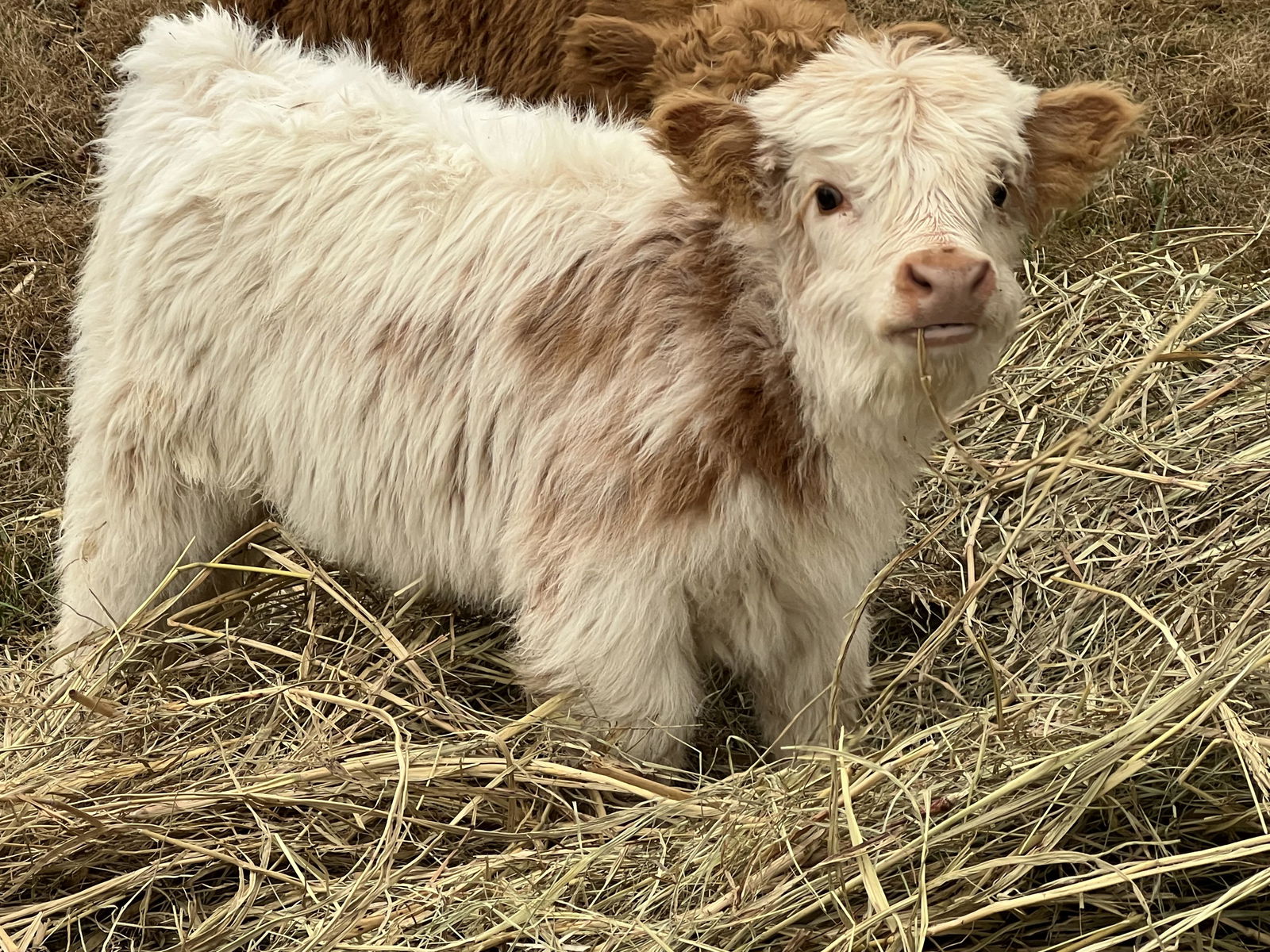
How Much Do Ferrets Cost? Guide (2025)
Author: Elliott Garber, DVM
If you’ve ever watched a ferret playfully bound around, twisting and bouncing with pure joy (that adorable “war dance”), you’ve probably felt that familiar tug of wanting one as a pet. Those intelligent eyes, that mischievous personality, the way they turn ordinary life into an adventure. Ferrets have a special way of capturing hearts.
But before you fall completely under their spell, let’s talk about something crucial: the real cost of ferret ownership. And I mean all the costs. Not just the sticker price at the pet store, but everything from that first cage setup to those unexpected midnight vet visits that ferret owners know all too well.
Here’s what many people discover after bringing their first ferret home: these amazing little creatures can cost significantly more than expected.
We’re talking anywhere from a few hundred to several thousand dollars per year, depending on your choices and your ferret’s needs.
That might sound intimidating, but don’t worry. With the right planning and knowledge, ferret ownership can be both affordable and incredibly rewarding.
Unlike simpler small pets like guinea pigs or rabbits, ferrets require specialized care and have unique needs that can impact your budget.
Let’s walk through exactly what you’re looking at financially, so you can make an informed decision about whether a ferret fits your budget and lifestyle.
Ferret Purchase Prices
The first cost you’ll encounter is actually getting your ferret. This varies quite a bit depending on where you shop and what kind of ferret catches your eye.
Pet Store Ferret Prices
Walk into most pet stores, and you’ll find ferrets priced somewhere between $150 and $400.
A typical ferret at Petco might run you around $200 in one state, while the same type could cost upwards of $350 in another region.
Why the higher price? Pet store ferrets in the U.S. almost always come already spayed/neutered and descented (scent glands removed), which saves you from those procedures later. They also typically receive their first round of vaccinations.
In essence, you’re paying for convenience and peace of mind. These ferrets are ready to go home with minimal additional veterinary work needed initially.
Pet store ferrets tend to be at the high end of the price spectrum, but what you’re getting is a ferret that’s been through the essential medical procedures.
One thing that can bump the price even higher? Color.
While most pet stores stock standard sable or albino ferrets, occasionally you’ll find something special. Less common ferret colors command premium prices. A black sable ferret (deep black-brown coat) might hit the upper end of that price range. Champagne-colored ferrets have similar pricing to other common colors, typically within the standard pet store range.
Bottom line for pet stores: Budget roughly $150-$300 for a typical ferret, though specialty colors or certain locations could push you toward $350+. You’re paying for a ferret that’s medical-ready from day one.
Ferret Breeder Costs
Going directly to a private breeder opens up a world of possibilities (and price ranges).
Pet-quality ferrets from breeders typically cost $100 to $400, similar to pet stores, but there’s more to the story.
Reputable breeders often have extensive color varieties, better socialization, and sometimes superior genetics. They’ll provide health guarantees (often up to a year for genetic issues) and detailed background information on your ferret. Many breeders start litter training and handle their ferrets extensively, so you get a more socialized pet.
But here’s where it gets interesting: show-quality or rare morph ferrets from top breeders can cost $500 to $600 or more.
These aren’t your average ferrets. We’re talking champion bloodlines, rare colorations, or specialized traits like angora coats.
One important consideration: ferrets from small breeders might not be descented or fixed unless specifically stated. This means you’ll need to budget for spay/neuter surgery yourself (more on those costs later).
Also, factor in possible travel expenses if your chosen breeder is far away. Shipping or a long drive could add $50 to $200 to your total cost.
Understanding ethical breeding practices can help you recognize why some breeders charge premium prices. They’re investing in genetic health, proper socialization, and responsible breeding practices that benefit both you and your future ferret.
Finding quality breeders: Since ferrets aren’t as common as cats or dogs, you’ll likely need to search online or through ferret enthusiast groups.
Creatures’ own breeder directory lists several ferret breeders across different U.S. states (covering regions from Ohio and Pennsylvania to New Mexico and Kentucky). Working with a known breeder ensures you get a healthy ferret from ethical breeding practices, though you might pay premium pricing for specific traits or colors.
Ferret Adoption Fees
Here’s where you can save significant money while doing something wonderful: adopting a ferret from a shelter or rescue.

Adoption fees typically range from about $50 to $150. Dramatically lower than buy prices.
Even better, adopted ferrets usually come already fixed and vaccinated, which saves you money on those procedures. Some larger shelters might charge up to $150-$200, especially if they’ve provided extensive veterinary care, but you’re still looking at substantial savings compared to pet stores.
One thing to keep in mind: shelters often have more adult ferrets than babies. While an adult ferret’s adoption fee might be lower, remember they may have fewer years ahead (ferrets typically live 6-8 years).
That said, many adoptable ferrets are young or middle-aged and make fantastic pets.
To find adoptable ferrets, check local small-animal rescues, exotic shelters, or general animal shelters with small pet sections. Ferret-specific rescue groups operate in many regions and often network through social media. You’ll also find listings on platforms like Craigslist or Facebook groups.
For guidance on evaluating any animal buy or adoption, check out this comprehensive guide on buying animals responsibly. It covers essential steps like verifying seller credibility and assessing animal health that apply whether you’re buying from a breeder or adopting from a rescue.
What about “free” ferrets?
You might occasionally see someone offering a ferret “free to a good home.” While tempting, approach with caution.
That “free” ferret might need immediate medical attention, vaccinations, or treatment for conditions the previous owner didn’t know about.
Budget for a thorough vet checkup and don’t consider the ferret truly “free” until you get a clean bill of health.
Ferret Legal Requirements
Before you spend a single dollar, verify that ferrets are legal in your area.
| State | Legal Status |
|---|---|
| California | Completely illegal as pets |
| Hawaii | Completely illegal as pets |
| Rhode Island | Legal with permit required |
| New Jersey | Legal with permit required |
| Other states | Generally legal without permits |
Availability also affects pricing. In areas where ferrets are uncommon, sellers might charge premiums due to high demand. Conversely, in ferret-friendly regions with multiple breeders and rescues, you’ll find more competitive pricing.
Understanding animal welfare regulations can help you navigate legal requirements in your area and ensure you’re supporting legitimate, compliant sellers.
The acquisition cost bottom line: You’re looking at anywhere from $0 (free rehome, with caveats) to $400+ for specialty situations. Most people will spend $100-$300 for a typical young ferret.
Always account for what’s included (spay/neuter, vaccinations) and any travel or permit fees. And remember: the buy price is just the beginning of your ferret budget.
Ferret Setup Costs
Here’s something that surprises new ferret owners: the setup costs can equal or exceed the ferret’s buy price.
These little escape artists need specific equipment to stay safe and happy.
Compared to the relatively simple needs of pets like hamsters or mice, ferrets require more sophisticated housing and enrichment.

Ferret Cage Costs
Ferrets need a secure, multi-level cage with room to play, sleep, and do their business.
A proper ferret cage ranges from about $75 for a basic used enclosure to $300 for a large new setup.
Plan on at least $100-$150 for a decent new cage that gives your ferret adequate space.
Remember, ferrets sleep up to 18 hours a day, but when they’re awake, they’re really awake. They need room to bounce around and play, so don’t skimp on cage size. You’ll regret it when you see your cramped, unhappy ferret.
Ferret Bedding and Litter Costs
Bedding and sleep accessories are crucial since ferrets love burrowing into cozy spots.
You’ll want fleece bedding or soft blankets, plus hammocks or sleep sacks that typically cost $10-$30 each. Get multiple hammocks so you can wash one while the other is in use.
For litter training (yes, ferrets can be litter trained!), you’ll need a corner litter pan for about $10-$15 and appropriate litter.
Avoid dusty clay litters. Ferrets have sensitive respiratory systems.
Paper-pellet or wood-pellet litters work well and typically cost $10-$20 for your initial supply.
Ferret Food and Supply Costs
Food and water dishes or bottles run $5-$20 each, depending on type.
Heavy ceramic bowls prevent tipping, while water bottles avoid spills. Many owners use both. Make sure bottles are sturdy and chew-proof.
Don’t forget a pet carrier for vet visits and transportation. A suitable carrier costs $15-$50 and will serve you for years.
Ferret Toy and Grooming Costs
Ferret toys keep these playful creatures entertained. Budget $5-$30 initially for tunnels, balls, and dig boxes.
Many ferrets also love simple household items. Cardboard boxes make fantastic free toys!
Grooming supplies are non-negotiable:
- Nail clippers cost around $5-$10 (ferret nails grow quickly)
- A soft brush ($5-$10) helps during shedding season
- Pet-safe shampoo (around $5-$15) is useful for occasional baths
Don’t overdo bathing though. Excessive bathing can worsen their natural musky scent.
Ferret Veterinary Costs
If your ferret isn’t already spayed/neutered (uncommon with pet store ferrets, but possible with breeder ferrets), budget $150-$300 for the surgery.
Even if your ferret comes fixed, you’ll need an initial vet checkup with vaccinations. Expect around $100 or more for exam fees plus rabies and distemper vaccines.
Total Ferret Setup Costs
Let’s add it up. Here are typical price ranges for initial setup:
| Item | Price Range |
|---|---|
| Ferret Cage | $75-$300 |
| Spay/Neuter Surgery (if needed) | $150-$300 |
| Litter Pan | $10-$15 |
| Bedding & Hammocks | $10-$30 |
| Food & Water Equipment | $10-$40 total |
| Pet Carrier | $15-$50 |
| Toys | $5-$30 |
| Grooming Supplies | $15-$40 total |
| Initial Vet Visit | $100+ |
| TOTAL SETUP | $295-$905+ |
If you need to save money, look for quality used equipment (just sanitize everything thoroughly), shop sales, or connect with other ferret owners who might have extra supplies.
Budget for some trial-and-error too. You might buy litter your ferret hates or a leaky water bottle that needs replacing. These adjustments are normal and usually minor, but having a small cushion helps.
Don’t forget potential extras: pet deposits if you rent, ferret-proofing materials (cord covers, baby gates), or travel costs if you bought your ferret from far away.
The setup reality: Most new ferret owners spend $300-$800 upfront for the ferret plus all essential equipment.
Being prepared with quality supplies keeps your ferret happy and healthy while potentially saving money long-term. A good cage won’t need replacing, and proper preventive care avoids bigger expenses later.
Monthly Ferret Care Costs
Once your ferret settles in, you’ll face ongoing monthly expenses. Here’s what ferret ownership actually costs day-to-day:
Monthly Ferret Food Costs
Ferrets are obligate carnivores with incredibly fast metabolisms. They eat small meals throughout the day and need high-protein diets.
Expect to spend $10-$50 per month on ferret food, depending on food quality and how many ferrets you have.
On the lower end ($10-$20/month), you’re covering basic kibble for one ferret. At the higher end ($40-$50/month), you might be feeding premium brands, multiple ferrets, or incorporating fresh/raw meat.
While ferrets don’t eat huge quantities (an adult eats roughly 5% of its body weight daily), high-protein food costs more per pound than regular pet food.
This is quite different from small pets like chinchillas, which primarily eat hay and pellets, or rabbits, which have more varied but generally less expensive dietary needs.
Money-saving tip: Buy in bulk when possible or use subscription services for discounts. Never compromise on diet quality though. Cheap food leads to health problems that cost far more than premium nutrition.
Ferret Litter and Cleaning Costs
Budget around $10-$20 per month for litter and cleaning supplies.
Paper pellet litter or wood stove pellets (a cost-effective option many owners use) might only cost $5-10/month when bought in bulk. Add a few dollars for litter box liners or deodorizers, and you’re looking at about $15-$20/month total for one or two ferrets.
Regular bedding washing is essential for odor control, but that’s mostly water and detergent you already have.
Annual Ferret Vet Costs
Ferrets need annual vet checkups and vaccinations, typically costing $100-$200 per year. That breaks down to about $10-$20 per month if you spread it out.
A typical visit includes:
- Exam fees ($60-$80)
- Rabies vaccination ($20)
- Distemper shot ($20)
- Possibly a fecal test
Important note: Ferrets are prone to specific illnesses like adrenal disease and insulinoma, especially as they age.
While we’ll cover emergency costs separately, your routine healthcare budget might increase for older ferrets needing blood work or medications.
In regions with mosquitoes, some vets recommend monthly heartworm prevention (the same medication used for small dogs), which adds a few dollars monthly since heartworm is often fatal in ferrets.

Ferret Pet Insurance Costs
Pet insurance for ferrets is available from some exotic pet insurers starting around $21 per month. Other specialty insurers offer plans in the $20-$50 monthly range.
Insurance helps with expensive illnesses and surgeries, but you’re paying premiums every month. Some owners prefer building their own emergency fund instead.
Either way, have a plan for unexpected vet bills. With two ferrets, you’d typically pay insurance per animal.
Hidden Monthly Ferret Costs
Utilities: Ferrets need cool environments (under 80°F to avoid heatstroke), so your AC bill might increase in hot climates. In cold areas, this is less of an issue since they tolerate cool temperatures well.
Toys and replacements: Budget $5-$15 monthly for new toys or replacing destroyed ones. Many months you might spend nothing, but ferrets can be rough on their belongings.
Treats: Ferret treats like salmon oil or FerreTone cost around $5-10 occasionally. A bottle might be $10 but lasts quite a while.
Total Monthly Ferret Expenses
Here’s what typical ferret ownership costs monthly:
| Expense Category | Monthly Cost Range |
|---|---|
| Food | $10-$50 |
| Litter & Cleaning | $10-$20 |
| Healthcare (averaged) | $10-$20 |
| Pet Insurance (optional) | $21-$50 |
| Toys/Replacements | $5-$15 |
| Treats | $2-$5 |
| TOTAL (without insurance) | $35-$110 |
| TOTAL (with insurance) | $56-$160 |
Typical ferret owners spend $65-$125 per month on ferret care when factoring in food, litter, and a share of annual expenses.
You can do it for less. A “bare minimum” scenario might cost around $50-$60 per month after the first year, even with basic food, litter, and minimal healthcare budgeting.
Realistically, most owners fall between these figures. Premium food and plenty of toys might bring you closer to $100 monthly, while bargain hunting with a healthy young ferret might keep you around $50.
Multiple ferrets: Two ferrets don’t cost twice as much as one. They can share cages, toys, and supplies, though they’ll eat more and need double the vet care.
Two ferrets typically cost about 1.8-2.0 times what one ferret costs, as ongoing costs (food, litter, vet care) nearly double while setup costs remain similar. If one ferret runs $60/month, two might cost around $90-$100/month when accounting for economies of scale with shared supplies.
Annual perspective: Budget roughly $40-$100 per month for one ferret, translating to $500-$1,200 yearly. Many sources suggest setting aside $300-$600 annually for routine care as a baseline, plus additional savings for surprises.
Ferret Emergency Costs
Beyond routine care, ferret ownership includes some costs that can catch you off guard:
Ferret Emergency Vet Bills
Here’s the reality: ferrets are prone to certain medical conditions like adrenal gland disease, insulinoma, and intestinal blockages from swallowing inappropriate items.
Emergency veterinary care can be expensive. Comparable to cat or dog emergency costs.
A single surgery or overnight hospitalization can cost hundreds to thousands of dollars. For example:
| Medical Issue | Typical Cost |
|---|---|
| Insulinoma treatment | $300-$500+ |
| Adrenal disease surgery | $500-$1,000 |
| Emergency foreign object removal | $800+ |
| Dental cleaning (with anesthesia) | $150-$300 |
Statistics show ferrets have a relatively high chance of medical issues during their lifetime. Ferrets are “a wild card when it comes to veterinary care”. Even healthy-looking ferrets can develop serious conditions.
Plan for the worst, hope for the best.
Many ferret owners maintain an emergency fund of at least a few hundred dollars, or they rely on that pet insurance we discussed earlier.
Additional Ferret Expenses
Travel and boarding: Ferrets can’t be left alone for more than a day.
- Professional boarding might cost $40+ per day
- Specialized ferret facilities charge up to $90 per night
- Many owners find “ferret buddies” (other ferret owners willing to pet-sit each other’s animals for free)
The “ferret tax”: These mischievous creatures might chew phone chargers, steal your keys, or cause minor home damage. Budget for occasional replacement costs and ferret-proofing materials.
Odor control: Even descented ferrets have a natural musky smell. You might spend $20-$50 annually on deodorizers, air purifiers, or extra laundry costs.
Equipment replacement: Over a ferret’s 6-8 year lifetime, you’ll replace some items. Cages rust, water bottles break, and you might want upgrades like larger enclosures or outdoor playpens.
The emergency fund recommendation: Set aside at least $500 for emergency vet care per ferret.
Save a little each month toward this goal if possible. Some ferrets stay healthy with minimal issues, but you can’t predict which category yours will fall into.
How to Save Money on Ferret Care
Ferret ownership doesn’t have to break the bank. Here are proven strategies from experienced owners:
Budget-Friendly Ferret Options
Adopt instead of buying. Adoption fees ($50-$150) are much lower than buy prices, and adopted ferrets usually come already vetted.
Buy consumables in bulk. Larger bags of food and litter offer better per-unit pricing. Just ensure your ferret likes the food before buying 20 pounds!
Shop secondhand for equipment. Used ferret cages might cost half the price of new ones. Sanitize with bleach solution and inspect for safety, but many items can be safely reused.

DIY Ferret Care Tips
Make your own toys and accessories. Ferrets often prefer simple pleasures:
- Dig boxes filled with uncooked rice
- Cardboard boxes
- Old t-shirts for bedding
Just ensure everything is safe and won’t create choking hazards.
Join local ferret communities. Ferret owners frequently share supplies, offer advice on affordable vets, and help each other with nail trims or temporary pet sitting. Facebook groups and ferret forums are goldmines for money-saving tips and community support.
Preventive Care Saves Money
Invest in preventive care. Proper ferret-proofing, high-quality diet, regular vet visits, and maintaining healthy weight prevent expensive problems.
A healthy ferret costs far less than a neglected one.
Consider insurance or dedicated savings. Whether you choose pet insurance (around $20-30/month) or save that same amount in a dedicated account, having a plan for emergencies prevents financial disasters.
Reduce Ferret Care Costs
Energy efficiency. If you need climate control for your ferret, optimize their living space rather than adjusting your entire home’s temperature. A room-specific solution can save on utility bills.
By using these strategies, you can significantly reduce ferret ownership costs without compromising care quality.
An owner might adopt ferrets for $100 total, find a large used cage for $50, and use creative bedding and toys (paying far less upfront than someone buying everything new).
The key principle: Never compromise on essential care like veterinary treatment, proper nutrition, or safe housing, but absolutely take advantage of deals, community resources, and smart alternatives where possible.
Are Ferrets Worth the Cost
Let’s put it all in perspective. When you add up everything we’ve discussed, ferret ownership typically costs somewhere between a few hundred and a few thousand dollars annually.
You’re looking at an initial investment of $300-$800 to get your ferret and set up their home.
Followed by $500 or more annually in ongoing care.
Over a ferret’s 6-8 year lifespan, you could spend several thousand dollars total. That makes ferrets a significant financial commitment (though typically still less expensive than larger pets like dogs, which might cost $10,000+ over their lifetime).
Benefits of Ferret Ownership
With proper planning and smart budgeting, many people manage ferret ownership quite affordably.
The joy and companionship these playful, intelligent animals provide can absolutely justify the costs. If you’re prepared.
Before committing to a ferret, honestly assess your finances: Can you comfortably handle the monthly expenses and manage an emergency vet bill?
If the answer is yes, you’ll discover that ferret ownership is richly rewarding. These creatures are endlessly entertaining, genuinely affectionate with their humans, and turn ordinary days into adventures.
For those curious about different ferret breeds and their characteristics, exploring standard ferrets can help you understand what to expect from these remarkable pets.

Planning Your Ferret Budget
Consider setting aside a “ferret fund” for a few months before getting your pet.
Allocate $50-$100 monthly to pet expenses (actually save the money) and see how it feels. If you can do this without financial strain, you’re likely ready for the responsibility.
Ferret Ownership Cost Summary
Ferrets do cost money (sometimes more than people expect), but knowledge is power.
Now that you understand the full cost breakdown (acquisition, setup, ongoing care, and potential extras), you can make an informed decision about bringing a ferret into your family.
With proper planning and budgeting, you’ll focus on enjoying your new fuzzy companion rather than worrying about surprise expenses.
Watching a ferret discover a new toy, seeing them bounce around in their famous “war dance,” or having them curl up for a nap in your lap makes every penny worthwhile.
Ready to start planning? You might want to begin by thinking about what you’ll call your new companion. Check out this fun ferret name generator to get some inspiration for the perfect name!
Remember: These cost estimates are based on 2025 data, and prices change with inflation and market conditions.
Always check current prices with local pet stores and veterinarians when creating your budget. By staying informed and proactive, you’ll ensure both you and your ferret have a happy, well-provided life together!

 All Species & Breeds
All Species & Breeds
 Highland Cattle
Highland Cattle
 Miniature Donkeys
Miniature Donkeys
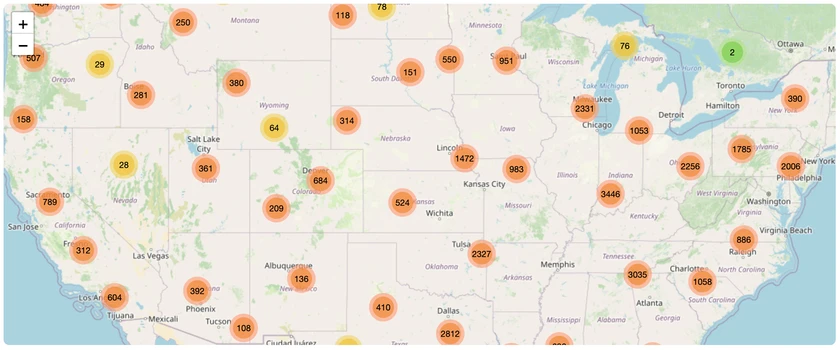 All Species Directory
All Species Directory
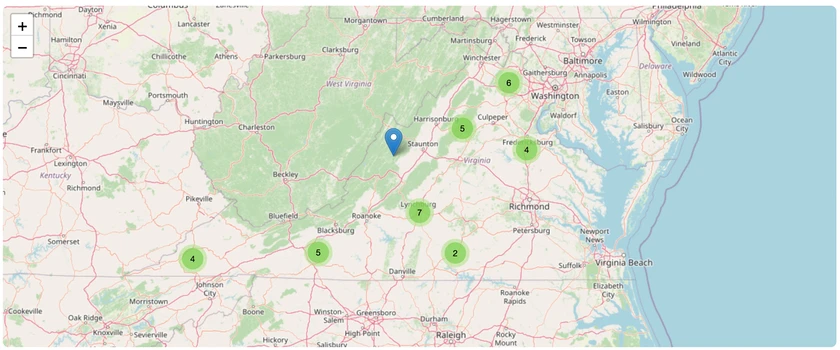 Highland Cattle in Virginia
Highland Cattle in Virginia
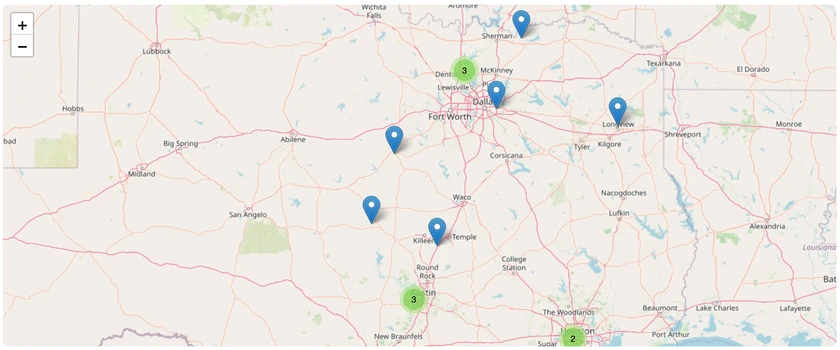 Miniature Donkeys in Texas
Miniature Donkeys in Texas

